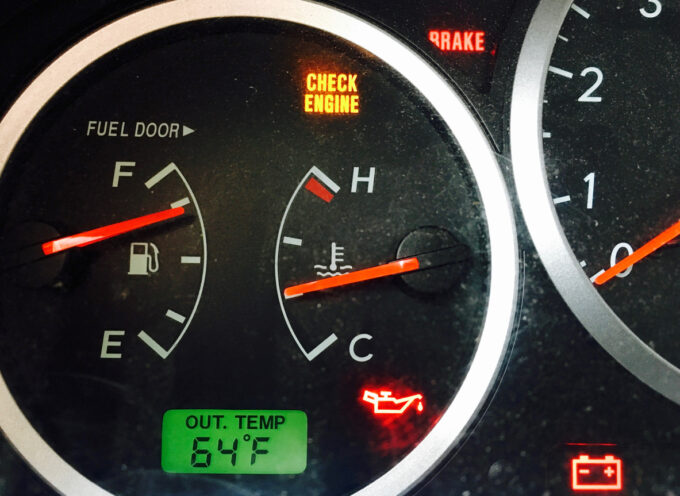The first line of the Lord’s prayer is, “Our Father who art in heaven, hallowed be thy name.” Or, in more contemporary English, “Our Father in heaven, holy and wonderful and beautiful is your name.” It functions as the opening salvo of a payer that proceeds to instruct us on how to savor and honor his majestic name.
It makes sense that a model prayer would begin in this manner. We believe God exists and therefore, it stands to reason that we should want to get to know him and love him, so that we can truly call him Father.
The first words of the Lord’s prayer, “Our Father who art in heaven, hallowed be thy name,” articulates well the end goal—but not the starting point—of the Christian life. As N. T. Wright puts it, the Lord’s Prayer “is the suit of clothes designed for us to wear in our full maturity. And most of us, putting the suit on week by week, have to acknowledge that it’s still a bit big for us, that we still have some growing up to do before it’ll fit” (12). As we grow into the “suit,” it steadily becomes a better fit. Our spiritual “body frame” begins to fill out the suit.
The word “Father” evokes several very rich biblical images of God. One of the most significant is God’s promise to King David that from his lineage a child would be born whose kingdom would last forever. Of this coming King, God said to David, “I will be his Father, and he shall be my Son” (2 Sam 7:14). Through this King and his righteous rule, we will be delivered eternally from sin and its painful consequences.
In other words, the spiritual experience of reciting this prayer should broaden our view of the world: it should remind us that the salvation God provides includes not only me, personally, but the cosmos as a whole. All of this theological freight is contained in the word “Father.”
Another significant image evoked by the word “Father,” is that of Jesus who, when he was wrestling with his divine calling to be crucified, referred to God as “Abba, Father.” Abba is an Aramaic term that denotes trust and affection, the type of confidence a young child would put in his or her “Daddy.” For those of us who are fathers, this should call to mind the emotions we felt when our small children have approached us and called us, “Daddy.” God our Father views us in much the same manner.
The word “Father,” therefore, reminds us that we also need to learn what it means to call God “Father” and submit ourselves to his broader mission. It reminds us that we are called to be ambassadors of his inbreaking kingdom. He is “Father” in the sense of the ultimate authority figure, and he is “daddy” in the sense that we can approach him affectionately and confidently.
If we are going to approach our Father respectfully, affectionately, and confidently, asking him (as the name “Father” biblically implies and as verse 10 explicitly instructs), we must be clear on the nature of this “coming kingdom.” Our understanding of his coming kingdom should begin with the fact that we live between two eras—between the first and second coming of Christ. In this time “between the times,” we are aware that Christ Jesus has already secured victory through his crucifixion and resurrection. And we know that he will return one day to consummate this victory by setting the world to rights.
When we recite the Lord’s Prayer, therefore, it is a powerful prompt for genuine spirituality. It teaches us how to hallow or honor his name and causes us to long for the whole world to honor the name of our Father in heaven. We want the whole world will reverberate with his praise.
Thus, we recite this model prayer in the way that a child tries on his father’s suit. N.T. Wright puts it well: “Our task is to grow up into the Our Father, to dare to impersonate our older brother, seeking daily bread and daily forgiveness as we do so: to wear his clothes, to walk in his shoes, to feast at his table, to weep with him in the garden, to share his suffering, and to know his victory” (23).
This prayer stands in diametric contrast to the direction of Western culture. Our culture is dominated by Expressive Individualism (EI), an ideology that has arisen during the past several hundred years, gathering steam in the last century and now dominating Western culture. EI is the view that the whole point of a person’s existence is to be authentic; that, in order for individuals to be authentic, they must align their lives with their deepest desires; and that, in order for societies to be authentic, they must applaud individuals for aligning life with their deepest desires.
So, what is it that makes EI a false ideology? It is built around the false “god” of individual desire. It’s prayer is “My Self who is on the throne, hallowed be my name.” By contrast, Scripture makes clear that the point of life is to be careful not to naively follow our own desires, which are often twisted and destructive; life’s purpose is to follow God’s desire for our lives, and therefore only to follow our own desires when they align with God’s.
As we meditate on this line of the prayer and seek to imbibe its vibe, we must remember that its truth applies not only to the private and interpersonal aspects of our being but also to our public lives. If God our Father is creator of heaven and earth, and King over all, we must find ways to make clear that we pledge absolute allegiance to him alone. All other allegiances—to political leaders, parties, or platforms, for example—pale in comparison to our homage to God. We must reserve our highest allegiance for God alone, and allowing our homage to him to inform the manner and intensity with which we pledge allegiance to any worldly person or power.
By beginning our day with, “Our Father who art in heaven, hallowed be thy name,” we frame the day’s tasks and challenges in light of honoring the name of our Creator and Savior. By ending the day in the same manner, we are able to give the strings of our heart a “tuning” so that they hum to the melody of God’s name.
Subscribe
Never miss a post! Have all new posts delivered straight to your inbox.







